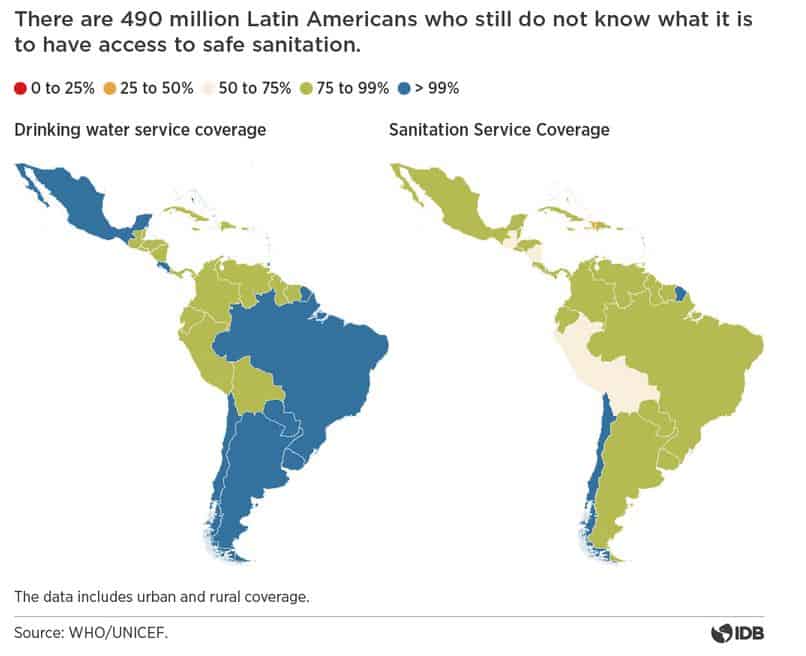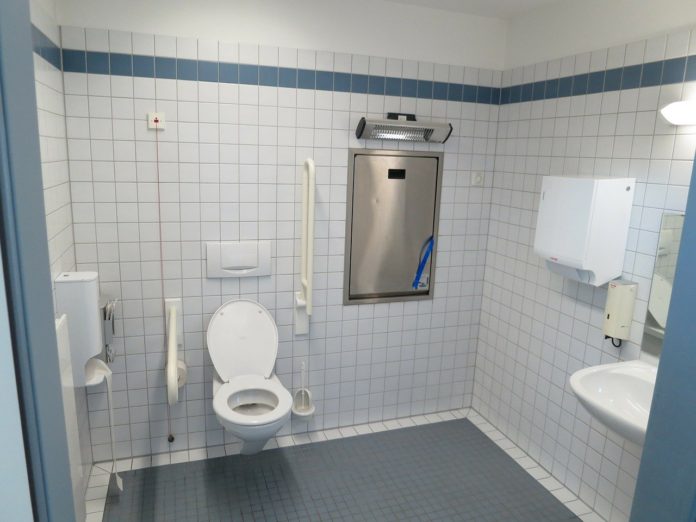Latin America is a paradoxical region. In the last decades, services such as wireless internet or cell phones have advanced by leaps and bounds, but not the sewer service. Still today in the region there are about 490 million people who do not have access to safe sanitation. But that’s not the worst figure.
“The toilet ceases to be the great social separator, and instead is a universal service for everyone in Latin America and the Caribbean,” explains ays Sergio Campos, head of the Inter–American Development Bank (IDB) Water and Sanitation Division. The region still has serious water and sanitation problems.
To the sad fact that in Latin America 69% of people do not have access to safe sanitation, we must add more than 19 million people who still relieve themselves outdoors on a daily basis. “A practice that has negative consequences on their health and the environment,” warns the IDB.

In addition, there is the problem of effluent treatment plants, which treat only about 15% of the produced effluents, “and even then, the quality of the treatment is often woefully inadequate,” reads an another report.
According to calculations by different multilateral organizations, closing sanitation gap would cost around $180 million annually until 2030, the year in which nations have committed to achieving the Sustainable Development Goals (SDGs), which include improved sanitation. According to the IDB, this figure represents almost double everything that has historically been invested in the region.
In the world
- In the world, there are 4.2 billion people who do not have toilets in their homes or have poor sanitation systems, according to the United Nations.
- 40% of the world’s population, or 3 billion people, do not have facilities to wash their hands with soap and water in their homes.
- Almost 300,000 boys and girls under the age of five die each year from diarrheal diseases caused by poor sanitation or unsafe water.
- 80% of wastewater returns to the ecosystem without being treated or reused.
- By 2050, up to 5.7 billion people could be living in areas where water is scarce for at least one month out of the year, creating unprecedented competition for water resources.
World Toilet Day 2020
This year the theme highlights the importance of “sustainable sanitation and climate change”. According to the UN, climate change is getting worse: floods, drought and rising sea levels threaten sanitation systems, from toilets to septic tanks and treatment plants.
But not all is lost. Bathrooms can help us fight climate change too!
“Wastewater and sludge from toilets contain valuable water, nutrients, and energy,” explains the UN. The sustainable sanitation systems make productive use of waste to boost agriculture safely and reduce and capture emissions for greener energy, so you have to bet on them.
